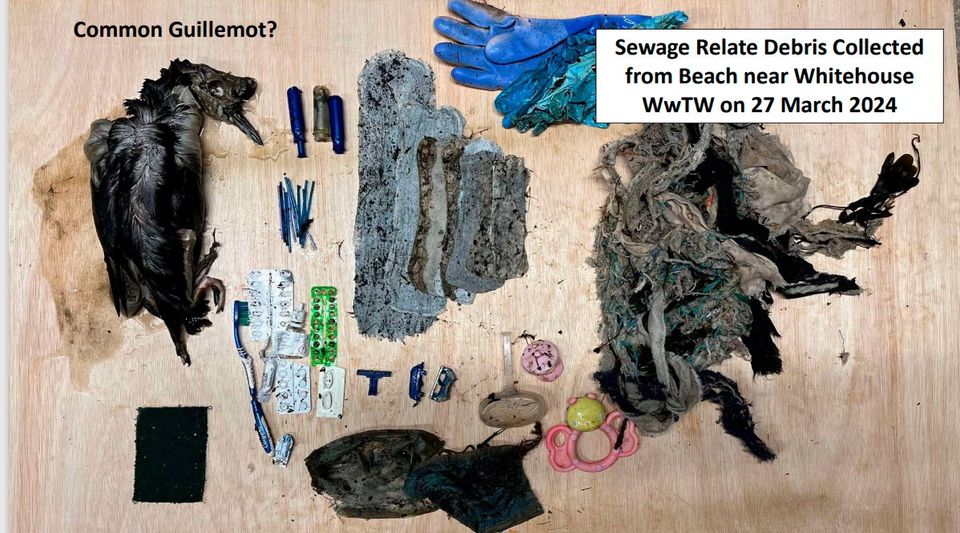The Assembly has been urged to publish a plan and start addressing a water infrastructure deficit amid concerns it is deepening the social housing crisis in Derry and Strabane.
Joe McGinnis, managing director of Braidwater, previously told this newspaper that their plans for 3,000 homes close to the Derry-Donegal border have been placed on hold because a pumping station needs upgrading.
Infrastructure Minister John O’Dowd has now floated the idea of developers contributing to the upgrade of treatment works.
A Living with Water document which makes the case for investment in Belfast’s water infrastructure was published by then Minister Nichola Mallon in 2019.
A NI Water presentation also says the Executive “approved” a £1.4 billion 12-year investment plan centring on a number of waste water treatment works (WwTW) that surround Belfast Lough.
The area contains shellfish protected waters and a previous assessment found increased levels of E.Coli in shellfish flesh, indicating a decline in water quality.
The document reveals that around 100 tonnes of sewage-related debris (SRD) was collected on a beach and in an area next to a sewage overflow pipe at Whitehouse waste water treatment works (WwTW).
Some of the sewage related debris collected close to Whitehouse waste water treatment works.
The amount of SRD in other parts of NI, including Derry, is unknown as NI Water said the figures for Whitehouse were the result of a “specific case study” for the Living with Water Belfast programme.
The document states: “An Interdepartmental Strategic Drainage Infrastructure Plan, entitled the Living with Water Programme, is being developed to support economic growth, protect the environment and address flood risk in Belfast.”
At present NI Water estimates that 19,000 properties across Northern Ireland require capital intervention to proceed which includes social housing projects.
Of those, 28% are in the Derry City & Strabane Council area, 17% in Ards & North Down and 13% in Belfast with lower numbers in other areas.
More than 1.2 million tonnes of untreated sewage is also discharged along the city’s busy riverfront between the Craigavon and Foyle bridges – representing over 5% of the entirety of sewage spilled throughout NI annually.
A local councillor has questioned why a similarly comprehensive report has not been drawn up for the Derry and Strabane council area.
People Before Profit councillor Shaun Harkin said that almost 50,000 families and individuals, more than 6,000 in Derry alone, are “trapped on the housing waiting list and grappling with unaffordable rental costs”.
People Before Profit’s Shaun Harkin
He previously had a motion passed to form a taskforce to address the “housing crisis”.
Mr Harkin has urged the Communities Minister and the Executive to “initiate a mass social and affordable housing build to address housing scarcity”.
But Gordon Lyons’ department recently said only 400 or 500 social homes are planned across the whole of Northern Ireland.
Mr Harkin said: “It is completely unacceptable that there is no water infrastructure plan for Derry and Strabane where there is the most pressing housing need.
“Thousands of people are being impacted by inaction from the government over the years when it comes to investing in water infrastructure.
“This is causing misery for thousands of families who need good homes.
“It is another failure of the Stormont Executive which does not recognise Derry as the second city in the north, which was demonstrated by scant reference to Derry in the programme for government.”
SDLP MLA Mark H Durkan also said the Executive “didn’t need a crystal ball” to see the “catastrophic impact” that chronic and systemic underfunding in water and wastewater infrastructure would have on housing development, economic investment and future prosperity.
SDLP MLA Mark H Durkan.
He added that as a result, “areas in greatest housing need, like Derry will be hit hardest.”
The Department for Infrastructure said it is working with NI Water and other key stakeholders to develop a Strategic Drainage Infrastructure Plan in Derry, similar to the Living With Water in Belfast Plan.
“This aims to deliver a new, strategic, long-term approach to drainage and wastewater management to help protect against flooding, enhance the environment and enable economic development in the City,” a spokesperson said.
“The Living With Water approach promotes collaborative working between key stakeholders to identify, where possible, opportunities for sustainable blue / green solutions to address multiple issues, such as reducing flooding and combined sewer overflows and improving water quality and biodiversity.
“Whilst the Living with Water in Belfast Plan was endorsed by the Executive when it was published in 2021, no additional funding was earmarked by the Executive.
“The schemes identified within this Plan have to be prioritised by each of the LWWP partners, including NI Water, against other schemes across the North and funded from their annual budget allocation.”
A spokesperson continued: “The Department has been historically underfunded by over a decade of cuts by the British Government.
“However, this year the Minister has provided NI Water with a budget allocation of almost £0.5 billion for 2024/25, representing just under 40% of the total non-ring-fenced budget for the Department for Infrastructure.
“It is for the Board of NI Water to prioritise its funding allocation to ensure that it delivers effective water and sewerage services within budget.”
DfC has been contacted for comment.


